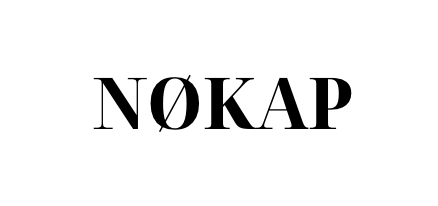
The Only Choice that Matters
This weekend marks five years since my grandmother on my mother’s side passed away. I did not even realize this until I opened Facebook tonight and saw a picture my aunt posted.
It was a picture of my mom, my aunt, and their mom- my grandmother. I read the post and became very emotional. My grandfather also passed away right before the Fall of my junior semester at UNC.
Recently, I have been thinking of them a lot. In general, I’m a very emotional person, and I like to feel. Like, I truly feel privileged to have the capacity to feel. It’s an honor to experience pain, sadness, hurt, anger, loneliness. Even these emotions have a deeper meaning.
But before I saw my aunt’s post, I went to talk to my mom about ideas for an upcoming project I have. We began to disagree about various topics, so our discussion became a bit heated as both of us were having difficulty expressing ourselves and getting frustrated doing so. In the end, we found some common ground, came to a conclusion, and I went to finish some work for class.
But I checked Facebook first. And the first thing I saw was that picture. And my heart suddenly began breaking for my mom.
It leaves a weird hole in you when you love your parents and then you realize they don’t have parents to physically love anymore. And then you think again and realize that it happens to everyone. So, you do that thing where you block the thought out of your brain because it’s too horrible to even think about.
And I guess for me the situation is elevated by the fact that I never got to spend time with my grandparents like most of my friends. My grandparents live thousands of miles away in Moldova. It would be impossible for me to stop by for dinner or stay the night. And you know what I’ve decided? That’s crap. No grandparent should ever have to live far from their children and grandchildren; no grandchild should have to go without grandparents.

The picture above is from 2013.
In Moldova, all houses have a gate and fence around the property. People usually have lots of space inside to keep a garden and sometimes animals. The green gate in the photo is the outside of my grandparent’s house. My grandmother’s eyes are so sad in the picture. It was the last time I would see her in person. We all cried that day. And my heart broke a little then too.
I feel lucky that even with the distance, I know how much they sacrificed for me, and I know how much they loved me. And even though we spent little time together in person, they left a huge mark on my heart and on who I am. I will always carry their advice and love with me. I honor them with my life.
Empathy is a theme quite a few of my blog posts cover. I think it is because I find empathy relevant to everything I do. Empathy is not only important because “what other choice do we have,” but because it’s the only choice that matters.
What other species can we communicate with? Who else can we love and share stories with? Who else can we try to understand? Who else can we save? History is important because it makes us who we are, as a collective and as individuals.
I made sure that every chance I got to spend with my grandparents was spent with empathy and humility. What could I learn from them? How could I encourage them? I could never assume I’d be given a second chance to get to fully know them.
The more I grow and learn, the more I feel that empathy is meant to be a constant state of being. In a way, empathy is context. It allows us to put ourselves in the shoes of others. When we talk to and interact with others, context does not disappear. People carry it with them. If we speak to others in a way that lacks some degree of empathy– even if we don’t necessarily know their context– we allow anger, frustration, offense, war, hatred, confirmation bias, hypocrisy, and so much more to rule over our relationships.
At the end of one of my classes today, my professor told the class that each of us has built a self, a profound self that matters and has a chance to do real good in this world. That broke my heart too. But in a good way. In a way that softens it and creates more room for loving others.
In my time at UNC, I have met many broken people. Many without fathers and mothers. Many who live alone. Many with anxiety and depression and health problems and issues. Many individuals handle insecurities and rejection caused by other individuals who hurt them in a way no human is ever meant to be hurt. And the fact of the matter is that it’s not even just “many people.” It’s all of us. We are many people.
So, when I heard a professor bless his students with such encouragement, confidence, and belief in them, and when he spoke those simple words that I wish everyone could hear every day, I got emotional. I felt a wave of something I don’t really know how to explain. I think it was mostly thankfulness. Thankful that a group of about 40 students was given something to hold on to. They were told they are worth it and to keep fighting.
If we have eyes to see, we’ll find that there are so many things to hold on to. So many reasons to keep fighting and loving.

My aunt (left), grandmother (center), and mom (right).





